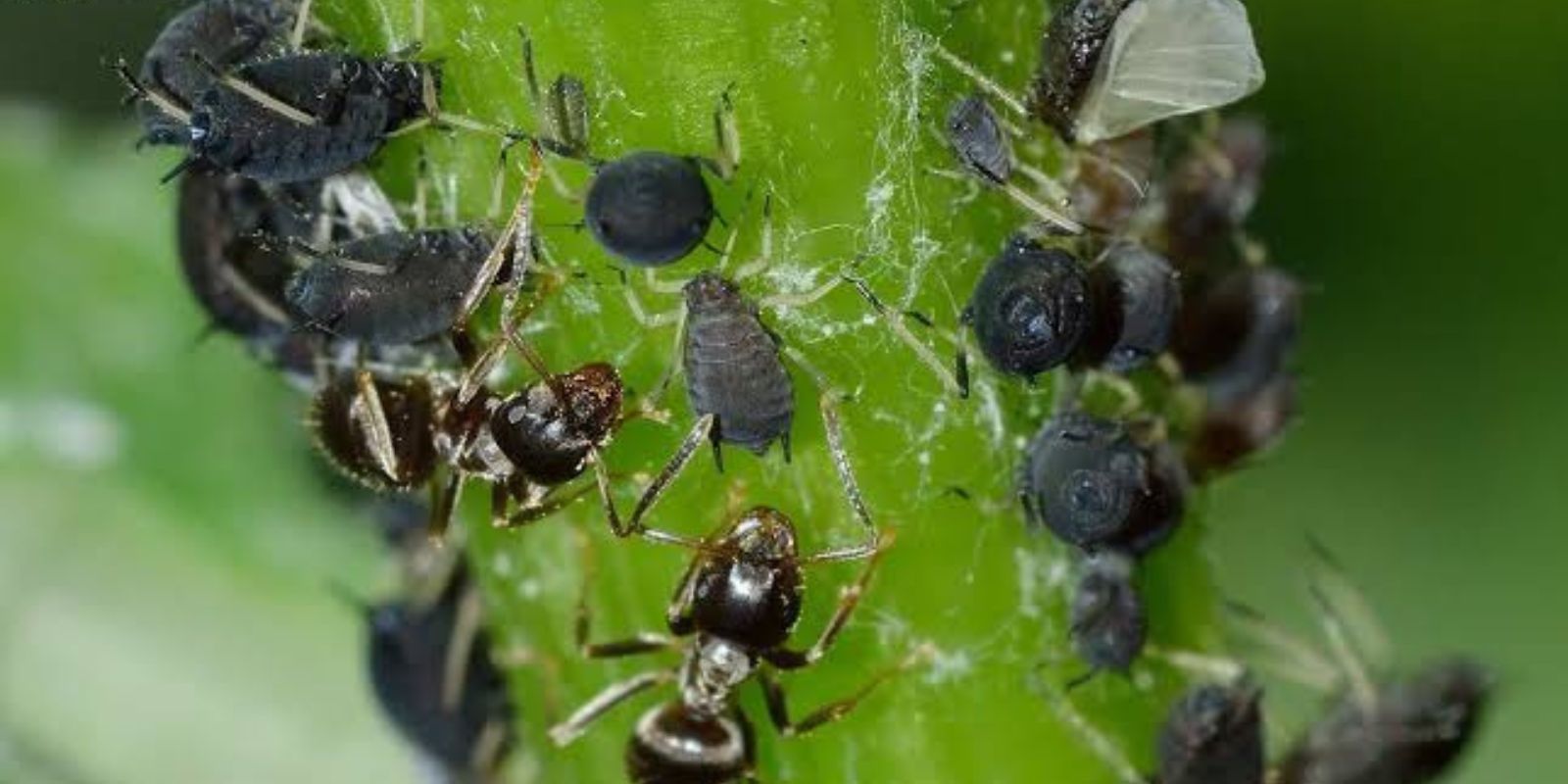Aphids, also known as plant lice, are tiny insects that can cause significant damage to your garden. They suck the sap from plants, weaken their structure, and spread diseases. While many gardeners resort to chemical pesticides, these can harm beneficial insects and the environment. Fortunately, there’s a natural, effective, and eco-friendly way to get rid of aphids using a homemade insecticide. In this article, we’ll walk you through the process, share additional tips, and help you achieve an aphid-free garden without the use of harmful chemicals.
Understanding Aphids: Why Are They Harmful?
Aphids are small, pear-shaped insects that can be green, black, brown, or white. They multiply rapidly and form large colonies on the stems and undersides of leaves. Here’s why they’re a problem for gardeners:
- Sap-Sucking Behavior: Aphids feed on the nutrient-rich sap of plants, weakening them and causing wilting, yellowing, and stunted growth.
- Disease Spread: They can transmit plant viruses, leaving crops vulnerable to further damage.
- Honeydew Secretion: Aphids excrete a sticky substance called honeydew, which encourages the growth of sooty mold and attracts ants.
Eliminating aphids promptly is essential to maintaining a healthy and thriving garden.
Why Use a DIY Insecticide?
Homemade insecticides are an excellent alternative to chemical pesticides. Here’s why they’re worth trying:
- Eco-Friendly: They won’t harm beneficial insects like ladybugs, bees, and butterflies.
- Non-Toxic: Safe for you, your family, and your pets.
- Affordable: Most of the ingredients are already in your kitchen or easily accessible.
- Customizable: You can adjust the recipe to suit your specific needs.
How to Make the Best DIY Aphid Insecticide
Ingredients You’ll Need:
- Water: Acts as the base of your spray.
- Liquid Soap: A mild soap, like castile soap or dish soap, helps break down the aphids’ protective coating.
- Neem Oil: This natural oil is a powerful pest deterrent and disrupts the lifecycle of aphids.
Step-by-Step Instructions:
- Prepare the Mixture:
- In a clean spray bottle, combine 1 liter of water, 2 teaspoons of mild liquid soap, and 1 teaspoon of neem oil.
- Shake the bottle well to ensure all the ingredients are fully mixed.
- Test the Spray:
- Before applying the insecticide to the entire plant, spray a small amount on one leaf. Wait 24 hours to check for any adverse reactions.
- Apply to Affected Plants:
- Focus on the undersides of leaves and areas where aphids cluster. Spray generously, ensuring the solution reaches all parts of the plant.
- Reapply as Needed:
- For severe infestations, reapply every 2-3 days until the aphids are gone. For maintenance, use the spray once a week.
Additional Tips for Aphid Control
- Introduce Beneficial Insects:
Ladybugs, lacewings, and parasitic wasps are natural predators of aphids. Consider releasing these insects into your garden to help control the population. - Plant Companion Species:
Certain plants, like marigolds, garlic, and chives, repel aphids. Adding these to your garden can help keep pests at bay. - Use Physical Removal:
If the infestation is light, you can remove aphids manually by spraying them off with a strong stream of water or wiping them with a damp cloth. - Maintain Plant Health:
Strong, healthy plants are less susceptible to pest attacks. Ensure your plants receive adequate water, sunlight, and nutrients.
Benefits of Neem Oil in the DIY Spray
Neem oil is a key ingredient in this insecticide recipe. Its natural properties make it a valuable tool in pest control:
- Disrupts Growth: Neem oil interferes with the hormonal balance of aphids, preventing them from maturing and reproducing.
- Repels Pests: Its strong scent deters aphids and other insects from attacking plants.
- Biodegradable: Unlike chemical pesticides, neem oil breaks down quickly and doesn’t linger in the environment.
Preventing Future Infestations
- Regular Inspections:
Check your plants regularly for signs of aphids, such as curled leaves, sticky residue, or visible clusters of insects. Early detection can prevent large infestations. - Avoid Over-Fertilizing:
Excess nitrogen encourages soft, new growth, which aphids love. Use a balanced fertilizer and avoid overfeeding your plants. - Prune Affected Areas:
If certain parts of a plant are heavily infested, prune them off to prevent the aphids from spreading. - Maintain Garden Cleanliness:
Remove dead leaves and debris where aphids might hide.
Why This DIY Insecticide Works
The combination of liquid soap, neem oil, and water creates a powerful yet gentle solution for tackling aphids. The soap breaks down their protective coating, neem oil disrupts their lifecycle, and water helps spread the mixture evenly. This natural remedy ensures that your plants stay safe and your garden remains chemical-free.
Conclusion
Eliminating aphids doesn’t have to involve harmful pesticides. By using this simple DIY insecticide, you can protect your plants, maintain a healthy garden ecosystem, and save money in the process. The satisfaction of nurturing your garden naturally is unparalleled, and with consistent care, you can keep aphids at bay for good.
Have you tried this method? Share your experiences or your favorite pest control hacks in the comments! Together, let’s create thriving, pest-free gardens.
#AphidFree #NaturalPestControl #GardeningHacks #EcoFriendlyGardening #HealthyPlants #DIYInsecticide

